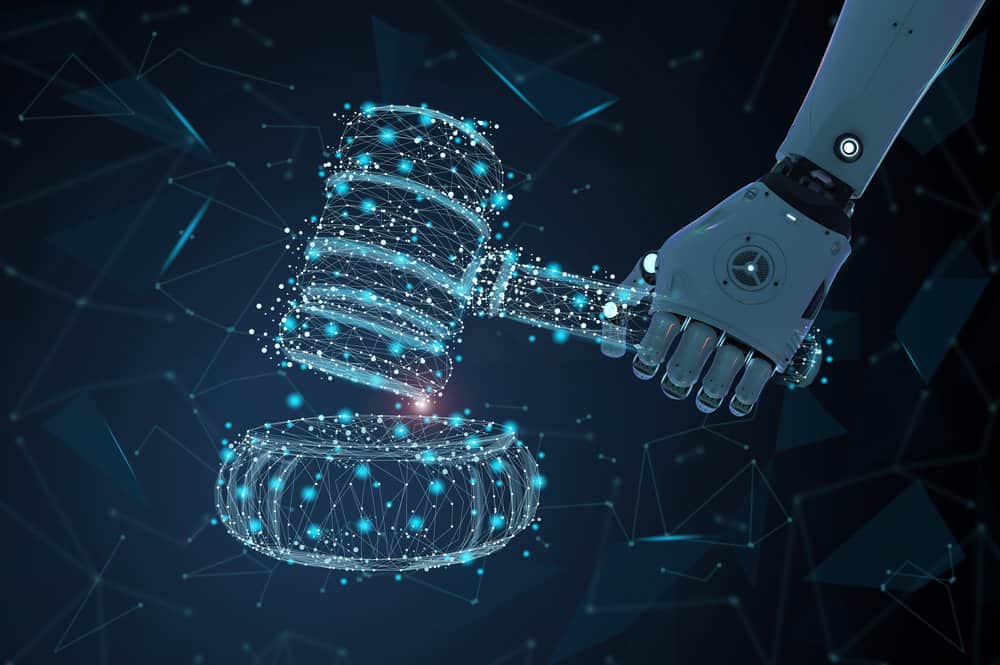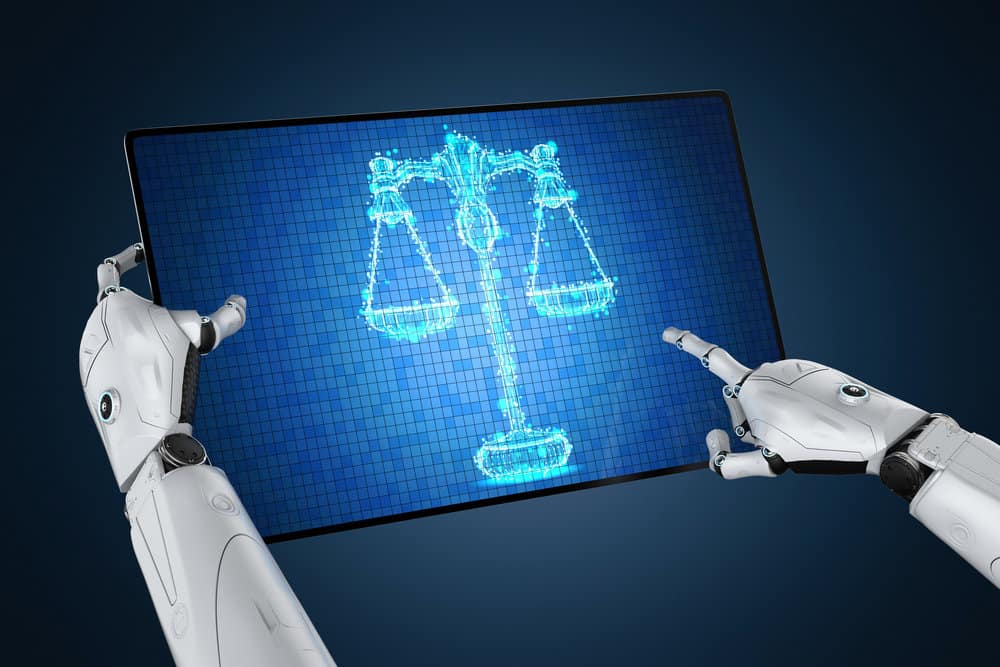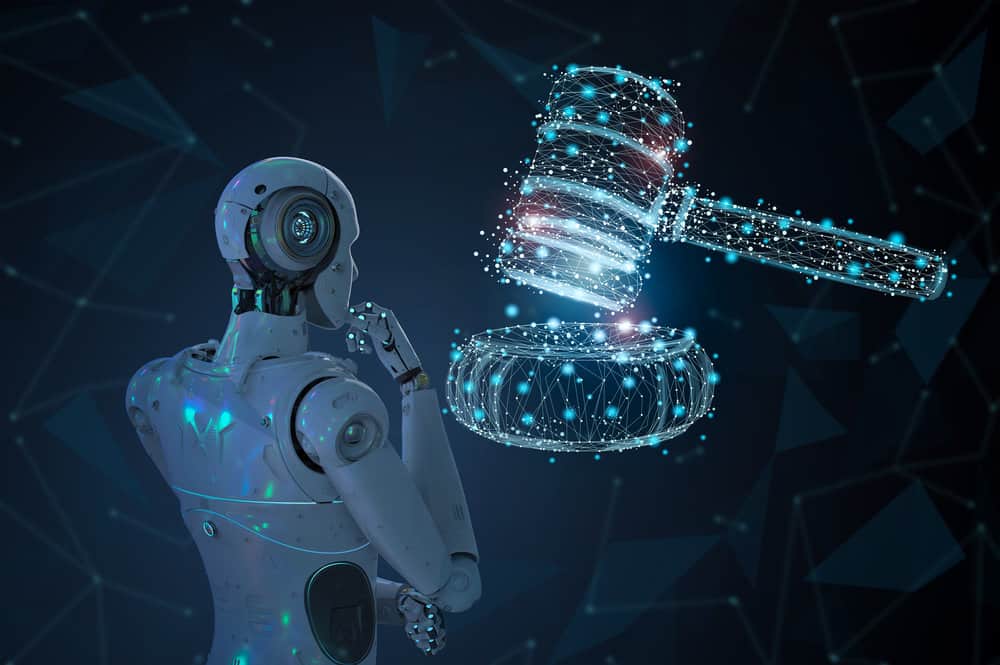Artificial Intelligence (AI) technologies promise to revolutionize the legal industry as more law firms leverage its use to improve their efficiency and lower the cost of their services.
The profound effects of AI will augment law practices by making it easier for attorneys in several areas. Its current uses include faster discovery processes, legal research, and contract reviews. Newer developments include helping with contract drafting, predicting legal outcomes, and recommending judicial verdicts.
Can AI Revolutionize the Legal Industry?
AI has revolutionized the legal industry in several ways and is about to get even more advanced. Forbes reports that earlier this year, DoNotPay, a company providing online legal services, wanted to guide a client contesting a parking ticket using an AI-powered lawyer in court for guidance. The immediate reaction from state prosecutors was to threaten the company’s founder with jail time.
AI-driven representation may seem like a new and scary idea, but how will the legal industry take advantage of its power, especially in the light of ever-more sophisticated large language model-based systems?
Human judgment remains vital to the judicial process and the legal profession, meaning some issues with AI still need to be overcome. These include the fact that AI is data-driven, meaning there’s the risk of embedded bias. Another problem is that humans must understand the foundation behind AI decisions.
Exciting developments also mean a lot of food for thought. It’s worth taking a look into the future of law.
AI Uses in Law Today
Machine learning (ML) allows attorneys to review contracts quickly and accurately, ensuring the elimination of human errors. It’s also a powerful tool for legal research because it uses semantic searches instead of keywords. Since it understands the meaning of the words, it makes the process seamless, as it does with discovery.
AI still has a long way to go before it can draw up contracts because of law changes, various jurisdiction requirements, and context specifics. Legal professionals are vital to ensure these are correct. However, AI can help with the draft language.
Recently, lawyers have used AI to predict outcomes, giving them better insights on taking a client on contingency. These also advise them when it’s better to settle than go to court or whether they must invest in experts.
Judges also use AI before deciding on pre-trial detention, early release, and sentencing. They can also get information about the likelihood of someone becoming a repeat offender. However, accuracy and fairness are two problems that have come up with these tools, with a study conducted by ProPublica showing that they appear biased against black people. Business Law Today reports that COMPAS, the company that developed one such application, rejected the study’s conclusion. Still, computer-generated objectivity is slanted because the system relies on training from actual arrests and conviction rate data.
Automated Document Drafting and Workflow Management Systems
Another area of potential applications for AI is automated document drafting and workflow management systems. Automating the document creation process can help attorneys save time and effort while still producing high-quality work products. It can also reduce errors due to manual input mistakes or incorrect formatting. Additionally, AI-powered workflow management systems can help attorneys better manage their caseloads and prioritize tasks more efficiently. While these systems would need to be tailored to the specific needs of each firm or organization, they could significantly improve productivity and performance for the legal industry.
AI and the Future of Law
AI carries several benefits since it has the potential to make the legal industry more accessible, affordable, and efficient. However, it also brings some risks, and it raises several questions.
Legal professionals ponder the following:
- Machine learning models may lack transparency, making them difficult to apply to some areas of legal processes.
- Embedded bias can lead to racist and sexist sentiments. How can these issues be addressed?
- AI has improved the discovery process, making it more efficient. However, what will happen to attorneys who refuse to use AI? Will they face the consequences if they have slower or incomplete discovery processes?
- Will attorneys have to disclose that they use AI in cases? If yes, what other information will they have to reveal? For example, will they have to divulge any inputs and training data used for their ML models?
- Finally, should criminal defendants have the right to access AI tools that can help them in their cases?
AI has several capabilities to prevent errors and omissions, especially in civil cases and the cause of justice where there are fewer possibilities of moral hazard. Legal professionals also have increased predictability in case outcomes.
With criminal law especially, AI becomes more problematic because AI is not ready to replace human decisions or judgment. ML models require training data that may contain bias, a problem that already exists in the legal system. Therefore, the challenge is finding ways to remove the inherent bias in the legal system.
The human element remains vital in law because AI technology cannot explain why it makes a recommendation. When required to make a jury presentation, attorneys have the privilege of having client relationships and working in a team to create the best arguments. Therefore, it seems that combining the extraordinary advances of ML with the advantages of the human element remains the best way forward.
Relying on the “intelligence” of technology does present several problems. These include reliance and trust in algorithms that could lead to a phenomenon known as automation bias. After all, the legal system makes decisions based on whether a person will spend time in jail. Can AI technology predict if a person is likely to commit another crime in the future?
Ethical Considerations of AI in the Legal System
The use of AI technology in the legal system presents several ethical considerations. First, there is a potential for bias to be embedded into ML algorithms and tools used by attorneys, judges, and other legal professionals. For example, ProPublica’s study found that COMPAS―a company that developed an application predicting outcomes such as pre-trial detention, early release, or sentencing―appeared biased against black people. To address these issues, it will be necessary to ensure that AI technologies are designed fairly and accurately and that content creators understand the implications of their data inputs. User testing should also be conducted to detect unintended biases before releasing an algorithm or tool into the legal system.
Data Privacy and Ownership
Another ethical issue that must be addressed with AI technology in the legal system is data privacy and ownership. As attorneys use AI tools to predict outcomes, they collect sensitive client data, including personal information or financial records. Therefore, these tools must provide secure data storage and proper access control protocols so only authorized personnel can access them. Additionally, attorneys should also consider who owns the data generated by their AI tools and if other parties or organizations can use it without obtaining permission from their clients first.
Legislative Changes
Finally, legislative changes may need to be implemented to ensure fairness for all litigants. As AI technology becomes more widely used, legal professionals may have access to information that could give them an advantage in court. Legislatures should consider new laws regulating AI tools and algorithms in court proceedings to prevent this. They should also create standards for training AI systems so that data inputs are as accurate and bias-free as possible.
Tips for Attorneys
Finally, there are a few tips that attorneys should keep in mind when incorporating AI technology into their practice. First, they should research different AI applications and tools available to them and make sure that the ones they choose are secure and reputable. Second, they should understand the risks of using these technologies and how to mitigate potential ethical concerns. Lastly, attorneys should evaluate whether AI tools benefit a particular case or situation before utilizing them. By following these guidelines, attorneys can ensure that their use of AI technology is ethical and effective in achieving positive client outcomes.
Final Take
AI has made it easier for attorneys to process a large amount of data while making better analyses and predictions for their cases. It has eased the time required for their research and reviews, meaning they can spend more time on the creative and complex side of the law.
At the same time, the new technology presents attorneys with several challenges. One of the most concerning is that coding or data input errors can lead to inaccuracies and bias. Implementing new technologies can also impact laws and regulations as they currently exist. Finally, who will be held responsible for errors in cases where lawyers have placed their trust in an AI-powered system?
As we look into the future of law, AI technology does have a place. It has the potential to revolutionize the legal industry. However, its implementation must ensure the protection of individual rights and make the law more efficient and cost-effective so that more people can access the legal system.
FAQs
What ethical considerations are there with AI in the legal system?
Ethical considerations with AI in the legal system include bias embedded into algorithms and tools, data privacy and ownership concerns and the potential for legislative changes to ensure fairness.
How can AI technology be used to streamline processes within the legal industry?
AI technology can automate document creation, prioritize tasks more efficiently, and improve workflow management systems, which could lead to improved productivity and performance in the legal industry.
Who is responsible for errors made by an AI-powered system?
It depends on the circumstances; ultimately, it would be up to a judge or jury to decide who is responsible for errors made by an AI-powered system.





